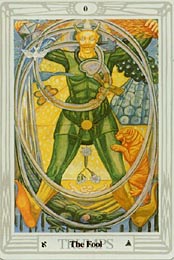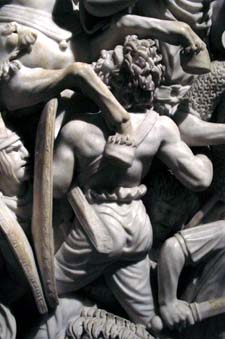
Gerard Vanderleun recently posted a thoughtful and moving essay on the topic of abortion, and his own personal reflections and experiences with it.
The crux of the abortion dispute is, as mentioned above, the question of when human life begins. At this point, we all know the opposing political and religious positions. At some point, human life begins and the fate of the fetus is either at the absolute will of the mother or it is not. Nevertheless, it is still hard to say exactly when humanness happens since: 1) We do not agree on the term “human,” and 2) as a result, all evidence on this issue remains anecdotal once you strip away the slant of the “research” that supports your preferred result.
When does the fetus become human?
This question, on one hand, seems all-important, yet at another level seems absurd beyond belief. It is a question which would never be asked were it not for the idea of ending a pregnancy by abortion. What reason would there be for such a question? A woman becomes pregnant, and is expecting a baby: this is the expectation of motherhood since man and woman first began procreating. In its natural course, barring unforeseen problems, a child is born — a unique instance of humanity, a living being like none other before or after. It is only in the context of deliberately interrupting this process — ending the pregnancy deliberately — that the question of of the humanity of the unborn fetus has been raised.
That such a question is raised with any seriousness is evidence of a profound denial — the denial required to end an unborn child’s life in the womb. To raise the issue of the humanity of those not yet born, to imply that the fetus is anything other than a human being, is to salve the deep discomfort of the soul inherent in the termination of a life. For we know, innately, that the unborn is alive, and human, and to justify its extinction we must engage in extraordinary contortions of conscience. Thus we say the fetus is an extension of the mother’s body, which it clearly is not; we refer to it as a blob of tissue or protoplasm, dehumanizing its unique and extraordinary human potential; we call it a “potential human”, as if at some magic point a switch is thrown to turn on its humanity — while never stopping to define what that humanity is, or why there is no humanity in the split second before our chosen transition time. We draw false and foolish analogies: the fetus is no different than a skin cell, or a “sacred sperm”, or a tumor — thus denying the extraordinary creation which occurs when the genetic map of two parents fuses into a new life, with an infinite capacity for uniqueness, change, experience, and creativity of its own. For we are created to create; we are engendered to engender; we are conceived to conceive again in an endless and infinite way: to conceive new ideas, new works, new accomplishments, new relationships, new failures and successes, and new life itself, in the generation which we ourselves engender.
From the moment of its conception, that which we so dismissively call a “fetus” begins a journey extraordinary beyond imagination. Using the inscrutable road map of its unique DNA, the developing human undergoes constant change and growth — a process which ends not at birth but some 25 years later when its full physical maturity is reached. Organs form; primitive cells differentiate into complex systems dedicated to tasks both present and future. Before its mother knows of the pregnancy, at 6 weeks, the heart and circulatory system is formed, and the heart is beating; the primitive cells forming the brain and spinal cord are in place and developing; facial features, including eyes, ears, mouth and nose are evident. By 8 weeks, fingers, toes and fingernails are present, as is the digestive system. By 12 weeks, virtually every organ system is formed and differentiated; the rest of the pregnancy is almost entirely about growth and the maturing of these intact systems. The information map for this extraordinary yet orderly complexity — and for far more, including intellect, personality, gifts and skills, — and yes, liabilities — is contained in the fertilized egg in its entirety. We are what we will be, from the the instant of our conception.
We deny what is self-evidently human for many reasons. Our secular and utilitarian culture has lost its sense of wonder at the miracle of that which is the creation of a new human life. Our children are no longer gifts but burdens, impeding our acquisitional materialism and imposing themselves on our pursuit of self-interest and self-gratification. We must dehumanize first, then destroy, the unborn child, that we may live out the delusional fantasy of unrestricted sexual license without consequences; that we may continue the self-deception that somehow we are masters of our own destiny; that we may perpetuate the fraudulent vision that our relationships are about self-fulfillment rather than sacrifice for the good of our progeny and the society and culture in which they will partake.
In introspective moments of regret we may mourn the potential loss, the wistful thought, that we have aborted a Beethoven or a Ben Franklin. Yet even this mild melancholy misses the point, showing the shallowness of our own humanity, as we find comfort in the rarity of such genius, while dismissing the loss of that far more tragic: the loss of the common, in all its richness and variety. It is not the loss of a Mozart we should mourn; it is the empty place where a merchant, a mechanic, a muse, a minstrel might have stood. It is the compassionate mother, the inspirational teacher, the clever repairman or comical co-worker who will never live to enrich the lives of others in ways trivial and transcendent. Our losses are incalculable, because we have destroyed them before we knew their worth. We sacrifice our hope and our future on the altar of calculated convenience and cold rationality.
It is not merely the loss of those who might have lived which we suffer; it is we who survive, who make these mortal choices, who are changed as well. For if the humanity of our children is fungible, redefined, discarded and spent on the expediency of convenience and self-interest, such expediency will not long remain in the dark chambers of the abortion suite. We will, in banal, measured, rational steps, soon judge the humanity of all with the same jaundiced eye. The disabled, the mentally ill, the elderly and frail will soon find our cold and rational eye cast upon them, as we find their lives ever more a burden, ever more useless and wasted, all too easily discarded as we pursue our utopian vision of perfection through self-worship.
Yet our Darwinian dream marches on, leaving the weakest to fall by the wayside in our evolution from compassionate humans to rational beasts. Survive we may — but at the ghastly price of wagered humanity lost.


 A recent post on the worldview of contemporary postmodern liberalism was kindly linked by Gerard Vanderleun over at
A recent post on the worldview of contemporary postmodern liberalism was kindly linked by Gerard Vanderleun over at  Donald Sensing has a
Donald Sensing has a 
 It takes only a brief review of conservative web sites, print media, and pundit blogs to be left with the impression of a deep frustration with liberalism, progressivism, or “woke” ideology. This arises not merely the disagreement with their beliefs and priorities, mind you — that is a given — but rather with their peculiar unresponsiveness to arguments of reason and logic. The scenario goes something like this: Some Democrat in Congress or liberal pundit makes an outrageous charge about conservatives, or Republicans, or Christians, or whatever. The conservative blogs and news sites burst forth with the news, followed shortly by detailed rebuttal of the charges, or ample testimony to prior events proving the hypocrisy of the attack. Well-reasoned, factual defense is the rule rather than the exception. Yet all to no avail. Those on the Left either shrug, or respond with even more outrageous accusations, or go ad hominem. I often wonder whether all this energy and effort has accomplished anything beyond making us feel better about ourselves and venting our frustration.
It takes only a brief review of conservative web sites, print media, and pundit blogs to be left with the impression of a deep frustration with liberalism, progressivism, or “woke” ideology. This arises not merely the disagreement with their beliefs and priorities, mind you — that is a given — but rather with their peculiar unresponsiveness to arguments of reason and logic. The scenario goes something like this: Some Democrat in Congress or liberal pundit makes an outrageous charge about conservatives, or Republicans, or Christians, or whatever. The conservative blogs and news sites burst forth with the news, followed shortly by detailed rebuttal of the charges, or ample testimony to prior events proving the hypocrisy of the attack. Well-reasoned, factual defense is the rule rather than the exception. Yet all to no avail. Those on the Left either shrug, or respond with even more outrageous accusations, or go ad hominem. I often wonder whether all this energy and effort has accomplished anything beyond making us feel better about ourselves and venting our frustration. I am not easily shocked anymore.
I am not easily shocked anymore.